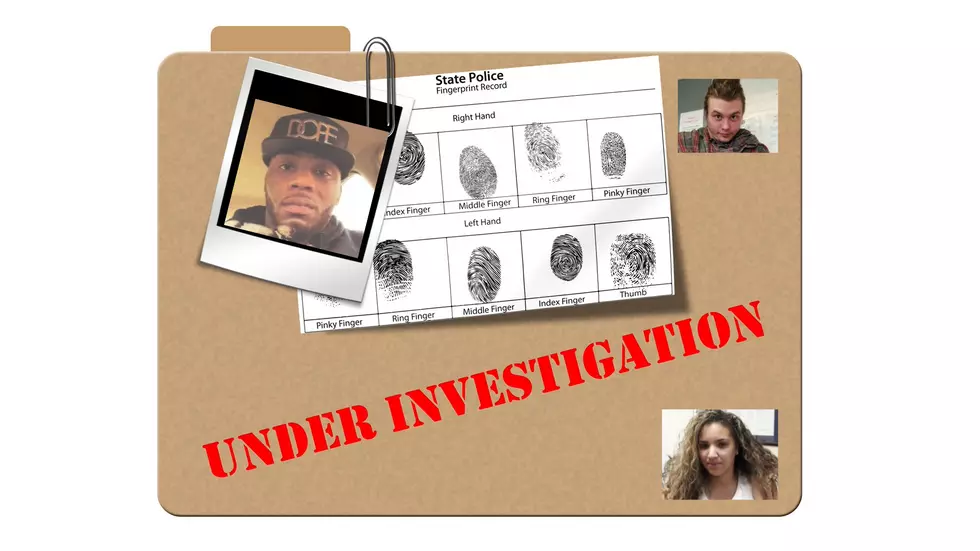
Various Connecticut St. Patrick’s Day Parades Are Being Cancelled
To limit the spread of Covid-19, many towns and cities throughout CT have canceled their St. Patrick's Day festivities.
Connecticut Governor Ned Lamont has declared public health and civil preparedness emergencies which is the reason many towns, and cities throughout Connecticut have decided to cancel St. Patrick's Day events. Because of the Coronavirus, the following locations have canceled their St. Patrick Day parades.
1. Danbury - The 25th Annual St. Patrick's Day Parade planned for Sunday, March 22 has been called off.
2. Norwalk - Norwalk Mayor, Harold Rilling has canceled Saturday's March 14 parade along with all events with over 100 attendees until the end of April.
3. Milford - Coronavirus concerns have canceled Milford's parade scheduled for this Saturday, March 14th.
4. Greater New Haven - New Haven has postponed their St. Patrick's Day Parade scheduled for this Sunday, March 15.
5. Hartford - Mayor Luke Bronin has called off the Greater Hartford parade scheduled for this Saturday, March 14.
6. Bridgeport - The parade scheduled for Tuesday, March 17 at noon is still on but has been scaled back and all indoor activities have been canceled. Parade organizers met with St. Vincent's Hospital officials before making their decision.
According to the Department of Public Health, the risk of becoming infected with COVID-19 is considered low for people who had contact with an individual who does not have COVID-19 and does not have symptoms. In other words, a contact of a contact is considered low risk.
Any resident that is not currently showing symptoms of the virus (two or three days of fever, cough, and shortness of breath) can dial 211 at any time with any basic questions.
Related stories:
The Governor's Office has also provided residents with some important messages to keep in mind:
- People without symptoms should not be tested for COVID-19. Testing individuals with no symptoms is not recommended by the CDC.
- If you were with someone who does not have symptoms, the risk of transmission is very low.
- There are many respiratory illnesses circulating in Connecticut, such as the flu and the common cold. Having respiratory symptoms does not mean that you have COVID-19.
- People are at higher risk for COVID-19 if they have symptoms of the virus (cough, fever, shortness of breath) AND if they were a contact of a positive case of COVID-19 (or have traveled to a country with community transmissions, such as China, Italy, South Korea, Iran, and Japan).
- Someone is considered a contact if they have had direct, face-to-face contact with a person with COVID-19.
- People who think they have COVID-19 should call their healthcare provider. These people should not go directly to a healthcare facility without first calling a healthcare provider (unless they are experiencing a medical emergency).
- People with general questions about COVID-19 can visit ct.gov/coronavirus or call 2-1-1.
- Everyone can help stop the spread of viruses in Connecticut.
- Get your flu shot, and make sure the people around you do the same.
- Wash your hands often throughout the day. Use warm water and soap. If soap and water are not available, use alcohol-based hand gel.
- Cough or sneeze into your elbow. Viruses can spread by coughing or sneezing on other people or into your hands.
- Stay home from work or school if you are sick.
- Avoid touching your eyes, nose, or mouth. Germs spread this way.
- Get plenty of sleep, be physically active, manage your stress, drink plenty of fluids, and eat nutritious foods.
- Keep surfaces (especially bedside tables, surfaces in the bathroom, and toys for children) clean by wiping them down with a household disinfect
Read More: Public Health + Civil Preparedness Emergencies Declared in CT | https://i95rock.com/covid-19-public-health-civil-preparedness-emergencies-declared-in-connecticut/?utm_source=tsmclip&utm_medium=referral
More From The Wolf









